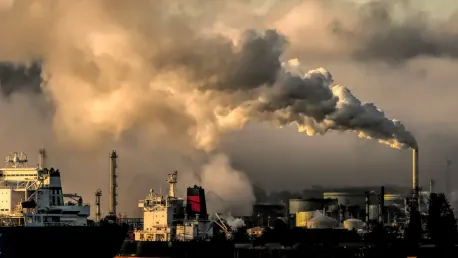The paradox within the insurance industry is starkly highlighted by current investments in fossil fuels and their consequent environmental impact. As insurers face significant financial losses due to climate change-related damages, they continue to invest in industries that exacerbate these risks. An examination of the portfolios of numerous insurance companies reveals that approximately 4.4% of their assets are tied to oil and dirty fuel companies. This investment choice sharply contrasts with the industry’s core responsibility to provide coverage for homes and assets increasingly impacted by climate-related disasters.
The financial contradiction becomes particularly apparent in situations such as the devastating wildfires in Los Angeles. On the one hand, insurers gain substantial revenue, estimated at $11.3 billion from premiums paid by Big Oil. On the other hand, the industry’s reported losses due to climate-related damages amount to $10.6 billion. These figures underscore a growing tension between profit-driven investments and the fiscal responsibility to manage and mitigate climate risks. The ripple effects of this investment strategy are far-reaching, with insurers halting new policies and refusing renewals in high-risk areas. This action significantly complicates the process for homeowners trying to secure necessary insurance for home loans, raising concerns about a potential mortgage crisis akin to the financial meltdown between 2007 and 2009.
Impacts on Housing and Legislation
The implications of insurance companies’ fossil fuel investments extend beyond immediate financial losses. The Brookings Institution has highlighted an alarming trend where rising premiums and limited availability of insurance could decrease housing demand and values in high-risk zones. The reduction in accessible insurance leads to decreased availability of home loans, creating a vicious cycle that threatens to destabilize the housing market. This scenario points to the need for comprehensive solutions to address both the investments and their impacts systematically.
Potential solutions include insurance companies divesting from oil and dirty fuels. These measures aim to reduce financial exposure to climate risks and promote investment in sustainable and renewable energy sources. States like California have initiated programs where insurers act as last resort providers for homeowners in high-risk areas, helping to ensure some level of coverage. However, these programs face significant challenges due to underfunding and overwhelming demand, exacerbating the problem rather than providing a comprehensive solution.
Legislative efforts to address the issue have also faced hurdles. A notable example is the bill proposed by Senator Josh Becker, aiming to encourage insurance companies to account for climate risk mitigation strategies in their portfolios. Unfortunately, this bill encountered significant opposition from the insurance industry, which has been resistant to regulatory changes that could impact their bottom lines. As a result, the push for legislative solutions has been somewhat stymied, despite the clear need for coordinated action at the state and national levels.
Calls for Industry Reform and Future Directions
The paradox within the insurance industry is highlighted by their investments in fossil fuels and the environmental impact these have. While insurers suffer significant financial losses from climate change-related damages, they continue investing in sectors that worsen these very risks. A closer look at many insurance company portfolios shows about 4.4% of assets are in oil and dirty fuel companies. This is sharply contradictory to the industry’s mission to provide coverage for properties increasingly affected by climate-related disasters.
The financial contradiction becomes clear in cases like the catastrophic wildfires in Los Angeles. Insurers receive an estimated $11.3 billion in premiums from Big Oil but report $10.6 billion in climate-related losses. This highlights a tension between profit-driven investments and the need to manage climate risks. The consequences of this strategy are vast, from halting new policies to refusing renewals in high-risk zones. These actions make it difficult for homeowners to get necessary insurance for mortgages, raising fears of a potential crisis similar to the 2007-2009 financial meltdown.









